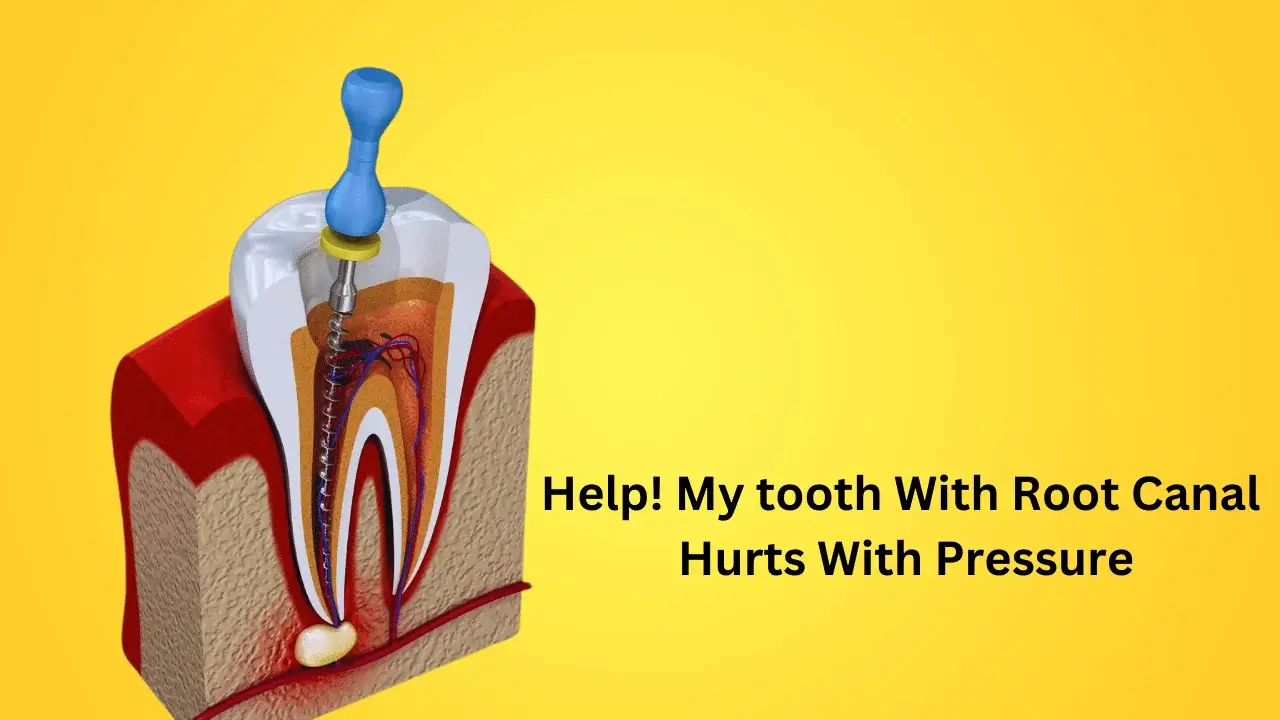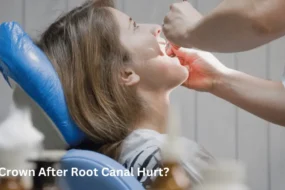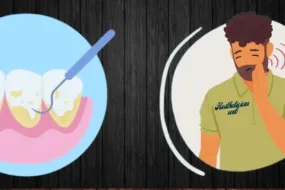
A root canal is a technique used to remove damaged pulp or the inner soft tissue from a severely infected or inflammatory tooth in order to save it. While it frequently works wonders for a searing toothache, some people have constant discomfort, especially when pressure is applied. If this describes you, relax! There are a few explanations, the majority of which are manageable.
This article explores why biting down on a tooth with a root canal hurt with pressure and still cause pain. We’ll look into lesser-known reasons, provide advice on how to cope with discomfort and direct you toward the next course of action to get relief.
Post-Root Canal Discomfort Under Pressure
Several factors can contribute to post-root canal sensitivity or pain:
- Inflammation and Healing: Root canal surgery requires accessing the inner chamber of the tooth to remove inflamed or diseased pulp. This technique might cause brief discomfort by irritating the surrounding tissues, especially when biting down. Although it often goes away in a few days, this irritation can occasionally persist for a week or two.
- Incomplete Cleaning: All bacteria from the infected pulp and root canals will be eradicated during the root canal process. However, microscopic canals or concealed pockets of infection may occasionally go unnoticed. Persistent microorganisms can induce pain and inflammation, mainly when pressure is applied.
- Temporary Crown Discomfort: A temporary crown is often placed over the tooth after a root canal, while a permanent crown is made. This temporary crown may fit imperfectly and leave the tooth sensitive and ultimately root canal hurts with pressure, mainly when chewing.
Why Does My Root Canal Hurt When I Tap It?
Although less common, the following are potential explanations for why your tooth could feel pain when tapped following a root canal:
- Modified Bite: Occasionally, a root canal treatment will cause a minor modification to your bite. Uneven pressure distribution and discomfort when chewing may result from this.
- Invisible distress: Although rare, some patients feel shadowy discomfort during root canal therapy. It is because the brain still perceives a neurological phenomenon in which pain signals from the treated tooth.
When Should I Be Concerned About Pain After a Root Canal?
After a root canal, some soreness is normal, but if you experience any of the following symptoms, you should see a dentist every away:
A throbbing or pulsating hurt that doesn’t go away usually indicates an infection.
Increased facial or gingival swelling: This is a sign of inflammation or infection that requires prompt medical treatment. Rest assured, professional intervention can effectively address these issues.
Chewing difficulty may point to an issue with the temporary crown, a need to alter the bite or an underlying infection.
Chills or fever: These signs indicate a possible infection spreading outside the tooth.
Temporary crown that is loose or broken: A broken temporary crown might make the tooth more sensitive.
It is essential to seek professional help for these symptoms. This prompt action is necessary to avoid potential complications and to ensure the long-term health of your tooth.
Managing Post-Root Canal Discomfort
The following actions can help you manage discomfort if you’r root canal hurts with pressure:
- Cold compress:
Apply a cold compress to the outer part of your cheek next to the afflicted tooth for ten to fifteen minutes. Repeat many times daily to help minimize swelling.
- Salt water rinse
Prepare a solution of one teaspoon of salt and warm water, and rinse your mouth daily with the solution.
- Soft Food
In the first few days after surgery, add soft foods to your diet that will reduce stress and help you to heel quickly.
- Preserving oral hygiene
Gently brush the area surrounding the treated area to preserve good oral hygiene.
What Pain Is Not Normal After a Root Canal?
Recall that minor discomfort is typical for a few days following a root canal. But if the discomfort is:
- Severe Persistent—during more than a couple of weeks
- getting worse over time
See your dentist without delay. Early detection and management are essential for appropriate treatment and long-term dental health.
Conclusion
Although some post-procedural discomfort is joint-related, a root canal is essential for saving a tooth. You can reduce your concern by learning the causes of the pain you experience when biting down, such as inflammation or a transient crown condition. You can encourage recovery and control discomfort by adhering to home care recommendations, which include taking painkillers and practicing proper oral hygiene.
See your dentist immediately if the pain is severe, ongoing, or accompanied by other symptoms. Prompt diagnosis and treatment can guarantee your teeth’s long-term health and avert future issues. Effective communication with your dentist is essential during and after the root canal procedure. You can have a pain-free grin by cooperating.
She writes to dispel myths, encourage wellness practices, and promote good lifestyle choices. Dr. Lisa Robert writes to leave a lasting impression on her readers’ health and well-being.





